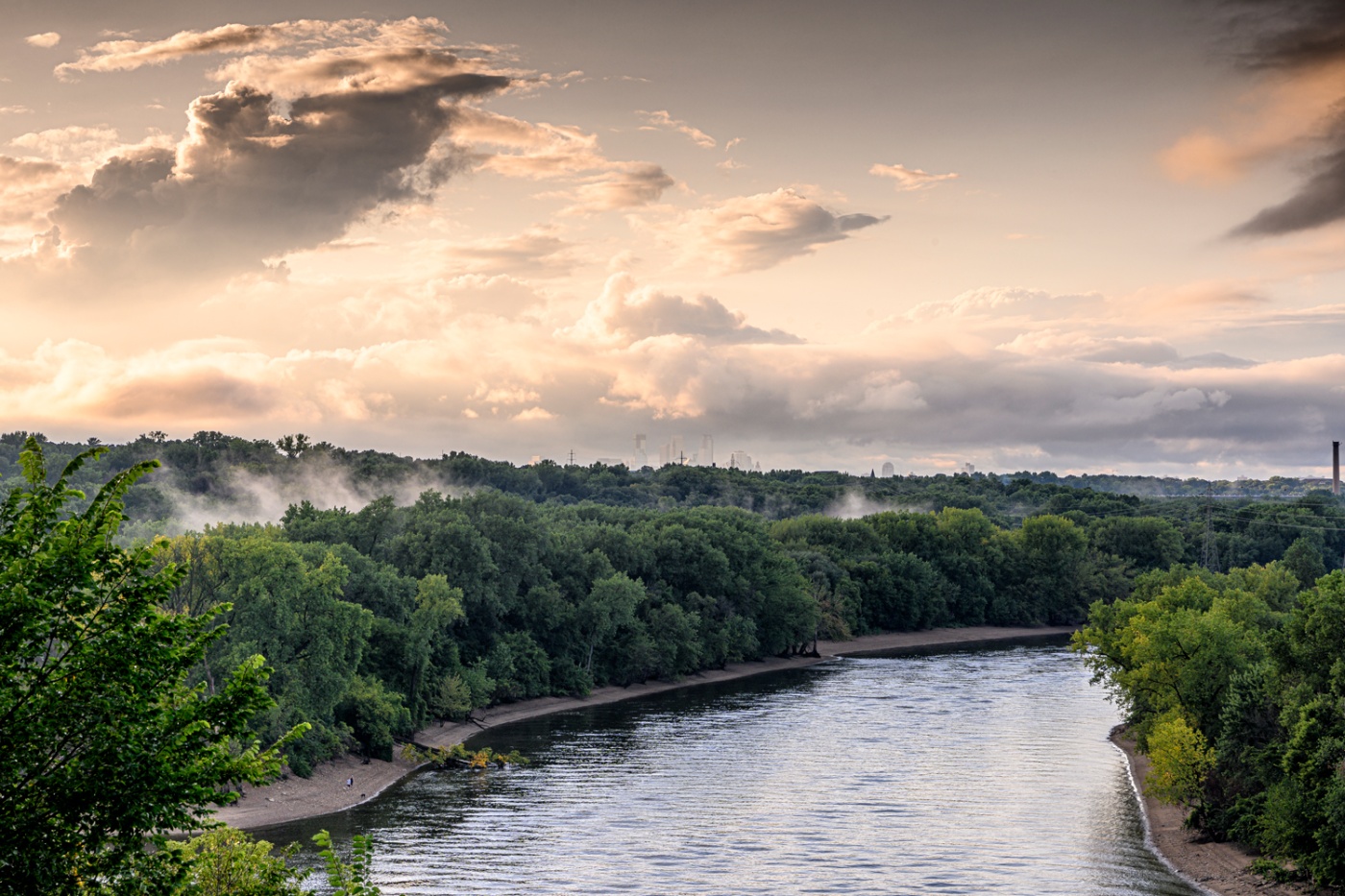This Indigenous Peoples’ Day, we bring awareness to an important piece of Minnesota history that’s often overlooked and celebrate the contributions of the 11 tribal nations that called this place home long before Minnesota became a state.
Many of the public lands we use today for recreation are also places with important spiritual and historical importance to Native Americans. For the Dakota people, the Bdote, where the Hapa Wakpa (Mississippi River) and the Mnisota Wakpa (Minnesota River) come together, is the birthplace of their people and their home for thousands of years. Bdote is a Dakota word that means “where two waters come together.”
Recently Conservation Minnesota staff and board participated in the Minnesota Humanities Center’s Learning from Place: Bdote workshop. The day-long tour brought us to significant sites of the Dakota people, giving us a glimpse into their history through storytelling that transcends generations—led by educator Ramona Kitto Stately—a member of the Santee Sioux Nation, Ethan Neerdaels—Bdewakantynwan Dakota—a Dakota culture and language specialist, and Reuben Kitto Stately, a Dakota musician. We are grateful and humbled to have spent the day learning from them.
The guides deconstructed narratives of the Dakota People that many of us grew up with, giving a fuller account that is often left out of textbooks.
The tour took us to Fort Snelling State Park, Pike Island, and Indian Mounds Regional Park where we were confronted by the negative impacts of excluding Native Americans from our history. The land in and around Fort Snelling State Park and Pike Island is the Bdote. It was also where 1,600 Dakota women, children, and elders were held in a concentration camp during the winter of 1862–1863.
Conservation organizations have historically overlooked the important role Indigenous tribes have had on the land and their connection to place. Conservation Minnesota is committed to supporting and advancing the efforts of groups like The Minnesota Humanities Center to begin to heal the effects of cultural erasure.
To recognize and show our appreciation for this experience, Conservation Minnesota will fund 10 scholarships to offset tour costs and ensure that others can learn through this immersive experience.
We strongly encourage others to seek out opportunities to learn about the past, present, and future consequences of colonization and how it impacts Minnesota’s Indigenous tribes. Learn more about the tour and how to get involved.
